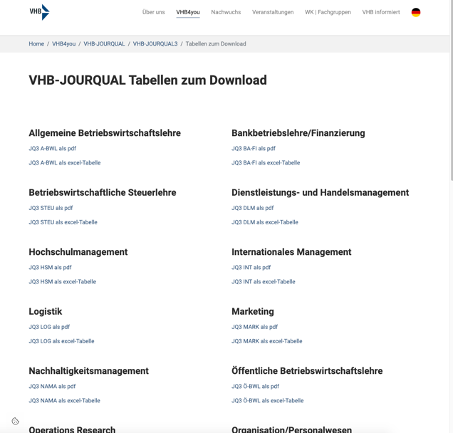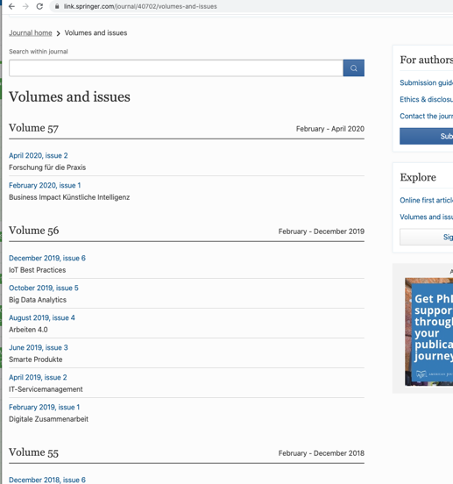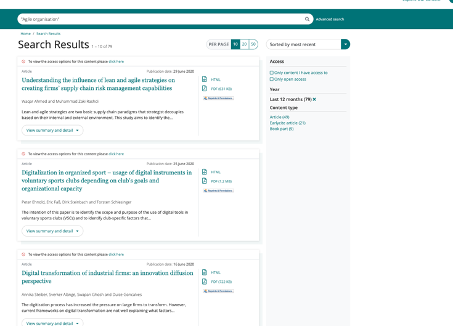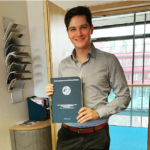You have a topic but cannot find it directly. You can get inspiration for this in the VHB Jourqual or search in academic databases. I present both ways in the following. It is important that you base a topic on sufficient literature.
Look at journals
Option 1 is that you go to the VHB Jourqual website and look at the rankings. On https://www.vhbonline.org/ look under tables for download. You will find the tables on various topics such as general business administration, business informatics or logistics and much more.

Now look at the Business Information Systems table and look at the journals by title. Does the title of a journal roughly correspond to your subject area? For example, the Journal of Computeral Finance might have useful articles on financial informatics. If you find such a journal, take a look directly at the journal. What topics were covered in the last three editions? For example, you can currently find topics such as IT governance, work 4.0, big data or smart products in one of my favorite magazines, the HMD Handbuch der Wirtschaftsinformatik. If you already have a specific topic in mind, feel free to look for which articles the magazine has recently published on it. If you have a good article take it as inspiration and build your work on it. Of course, you cite the article and explain the essential findings that form the basis of your work.

Academic databases
Another idea is that you are using an academic database. Examples are Emeraldinsight, Springerlink, Scholar or Sciencedirect. For example, you want to write about the agile organization. To do this, go to the Emeraldinsight website and search for Agile Organization. Then search for the search term and filter for “newest posts first”. Look at the headings for the past 12 months. Which topics are covered? In the example, these are the influence of agility on the supply chain, the influence of digitization on production, agile controlling and the influence of technology on agility.

Conclusion
Using these recommendations you can work out a topic quickly and easily and apply it to existing ones build scientific knowledge. You don’t need a lot of time for this. You need to look at the headings of the publications as a priority will quickly get a feel for the topics in your subject area are important and discussed. You should have found an interesting publication you should read this and see which other papers are cited there have been. You can and will also find other exciting publications quickly identify the foundation paper for your future thesis.
Reading tip: Find topic
[student] [fotolia]


